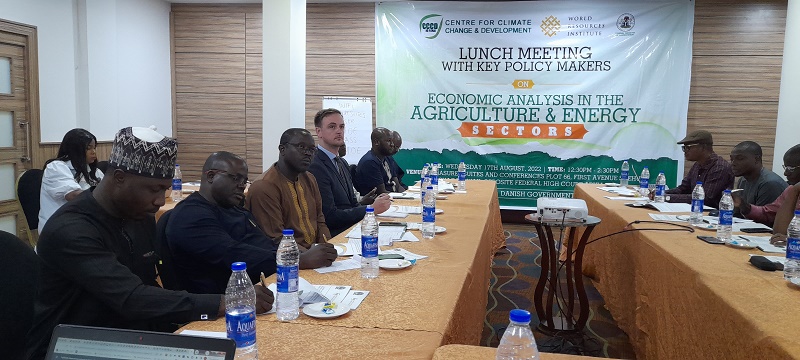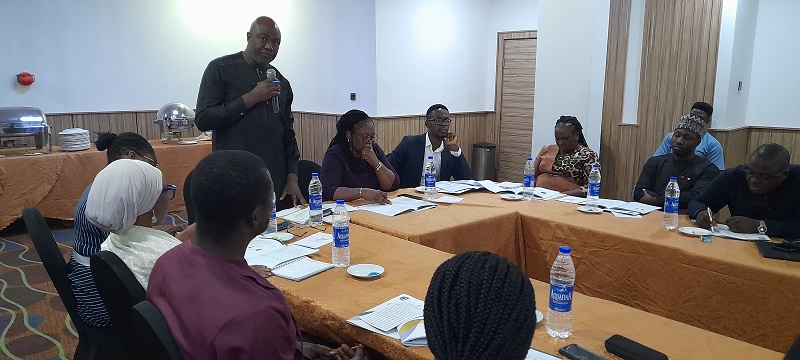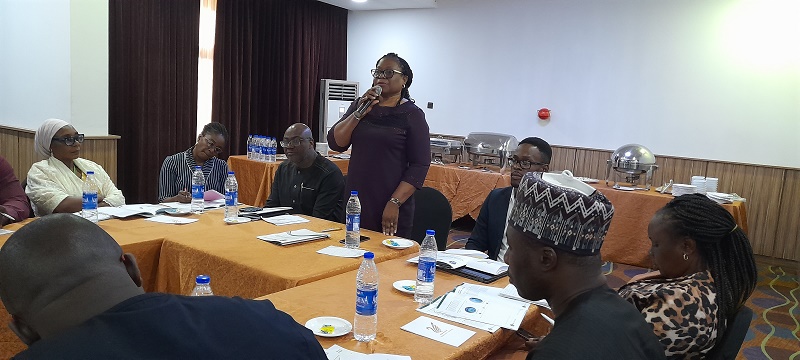Researchers and high-level representatives from relevant ministries, departments and agencies (MDAs) on Wednesday, August 17, 2022, convened for a lunch meeting in Abuja to review an economic analysis of inclusive green recovery and transition opportunities in Nigeria’s agriculture and energy sector.

The policy brief, commissioned by the World Resources Institute (WRI) and funded by the Danish Government, is aimed at supporting the Federal Government of Nigeria’s efforts towards the fulfilment of its objective to achieve economic recovery and green growth in the energy and agriculture sectors.
The policy analysis, credited to Robert Onyeneke, Chukwumerije Okereke and Chukwuemeka Emenekwe, shows the costs and benefits as it relates to the environment, health, and employment opportunities in Nigeria’s agriculture and energy sectors.
Opening the meeting, Professor Chukwumerije Okereke, the Principal Investigator and the Director of the Centre for Climate Change and Development (CCCD) at Alex Ekwueme Federal University Ndufu-Alike, said: “The impact of climate change is felt in all sectors; if you take the agricultural sector for example, of the five key staple crops consumed in Nigeria: maize, cassava, millet, sorghum and yam, climate change will negatively affect all of them, in some cases causing up to 70% decrease crop yield.
“This is a looming disaster and almost an existential threat because up to 70% of Nigerians depend on agriculture for their livelihood and the agricultural sector accounts for roughly 26% of our GDP. If we think outside of the box, we can explore ways to act on climate change and recover from the COVID-19 in ways that boost our economic growth. Nigeria has many things going for it and there is a need to identify those opportunities and capitalise on them,” he explained.

Also commending the efforts of the researchers and re-emphasising the need for such policy analysis to inform the government’s direction, Dr. Iniobong Abiola-Awe, the Director of the Department of Climate Change in the Federal Ministry of Environment, commented that “this policy analysis is timely, closely following the establishment of Nigeria’s Climate Change Council. The outcomes from this engagement will also strengthen Nigeria’s position during COP27 in Egypt.”
She also appreciated the Danish Government for providing the fund and thanked other ministries for their corporation.

Some analysed options in the energy sector as shared in the analysis include: providing five million off-grid households and SMEs with solar power; providing off-grid solar power supply to seven federal universities and seven university teaching hospitals across Nigeria; substituting 30 million homes cooking with dirty fuels traditional biomass to LPG; and moving 7.3 million households currently cooking with traditional biomass to improved cookstoves.
Under the agriculture sector, analysis options show the possibility of achieving intermittent aeration of rice paddy fields (~50% of total) in the systems of rice management through intensification; increasing the national cattle herd growth rate from the current 1.5% growth rate to 3.3% per annum using sustainable/intensive management methods in the area of sustainable cattle production (SCP) and improved natural forest management at about 128,528 ha of natural forests in the area of sustainable forest and land management (SFLM). The main outcomes analysed showed the contribution of each Initiative through economic, environmental and employment lenses.
The policymakers’ recommendations included a need for similar modelling focusing on gas. There was also a call for scaling up this analysis to cover other NDC sectors, model large-scaled surveys and design state-level analysis, as well as spotlight the private sector’s potential and leveraging opportunities.
Some of those in attendance included representatives from the World Resources Institute, the Embassy of Denmark in Nigeria, and officers from departments and agencies under various federal ministries including the Federal Ministry of Environment, Federal Ministry of Agriculture and Rural Development, Federal Ministry of Power, Federal Ministry of Finance Budget and National Planning, and the Federal Ministry of Industry, Trade and Investment.
By ‘Seyifunmi Adebote
